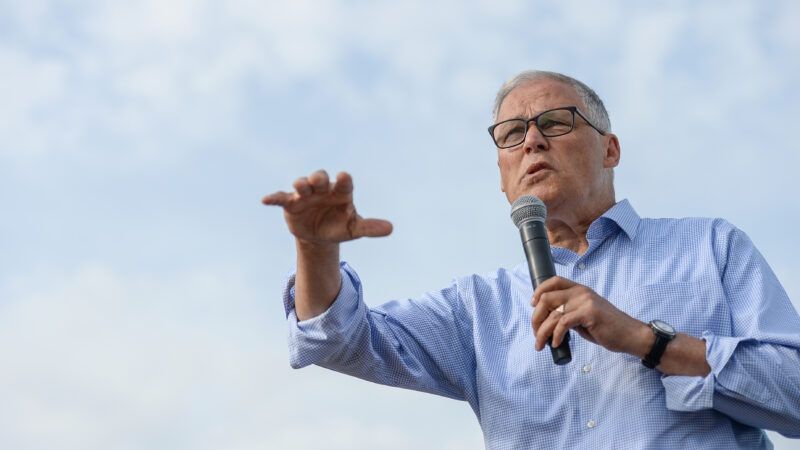Desperate To Avoid Decriminalization, Washington Legislators Lovingly Threaten Drug Users With Jail
The imminent expiration of a law that recriminalized drug possession triggered a bipartisan panic.

The Washington Supreme Court effectively decriminalized drug use two years ago, when it ruled that a state law making simple possession a felony even without evidence of intent or knowledge violated the right to due process. State legislators predictably viewed the result of that decision as intolerable, and they promptly approved a law that made possession a misdemeanor on the third offense and required that treatment be offered in lieu of punishment the first two times around.
That law is scheduled to expire on July 1, which prompted a bipartisan panic at the prospect that people might be able to use drugs without risking criminal penalties. During a special one-day legislative session convened this week to avoid that nightmare scenario, legislators approved a new bill criminalizing drug possession, which Gov. Jay Inslee immediately signed into law—"just in time," he says.
While Washington legislators viewed inadvertent decriminalization as a crisis requiring an emergency response, Oregon deliberately implemented that policy after voters approved it by a wide margin in 2020. That initiative made Washington's southern neighbor the first state to eliminate criminal penalties for low-level possession of all drugs. Instead it prescribed a $100 civil fine, which drug users can avoid by agreeing to undergo a "health assessment" at an "addiction recovery center." That assessment, which is supposed to "prioritize the self-identified needs of the client," might result in a treatment referral, but compliance is voluntary.
Washington's new law, by contrast, makes simple possession a gross misdemeanor, which is punishable by up to 364 days in jail and a $5,000 fine. That is less onerous than the law that the Washington Supreme Court overturned in 2021, which prescribed up to five years in prison and a $10,000 fine. But the new law is harsher than the temporary measure it will replace, which established maximum penalties of 90 days in jail and a $1,000 fine for the third offense.
According to Washington State Fraternal Order of Police President Marco Monteblanco, a bigger stick is necessary to beat drug users into submission. "Raising drug possession from a misdemeanor to a gross misdemeanor will provide additional influence to get people off the streets and into treatment," he explains. "The bill provides peace officers avenues to keep folks in need of treatment out of jail and our emergency rooms."
Inslee, a Democrat, likewise claims the new law "balances treatment and accountability" by threatening drug users with jail unless they agree to get the help that the state insists they need. Critics of the law complained that it gives prosecutors too much discretion to insist on punishment instead of treatment. But even when arrestees are allowed to pick between the two, that forced choice stands in sharp contrast with Oregon's policy, which is based on "self-identified needs."
The problem with that approach, as Inslee sees it, is that drug users cannot be trusted to decide for themselves what they need. "Drugs have stolen free will from some of these individuals," he says. "But we love them. We care for them. And we want to help."
By denying that drug users have the capacity to make their own choices, Inslee justifies a policy that overrides their autonomy and ignores their preferences. His plan to restore the "free will" of "these individuals" entails forcing them, under the threat of jail, to accept the "help" that the state is offering, whether they want it or not. Although that might look like kidnapping and extortion, Inslee insists it is an act of love.
Notably, that policy does not apply to drinkers, who are not forced into treatment simply because they are caught with liquor. Nor does it apply to cannabis consumers, since Washington legalized recreational marijuana back in 2012. It applies only to people who use psychoactive substances that the state has deemed beyond the pale.
Inslee assumes that people caught with illegal drugs have a problem that requires "treatment," regardless of whether they agree with that conclusion. Those individuals might be people with life-disrupting habits, or they might be casual users whose biggest drug-related problem is getting busted. Either way, they can avoid punishment only by accepting Inslee's love. This is what passes for enlightened and compassionate drug policy in the United States.
